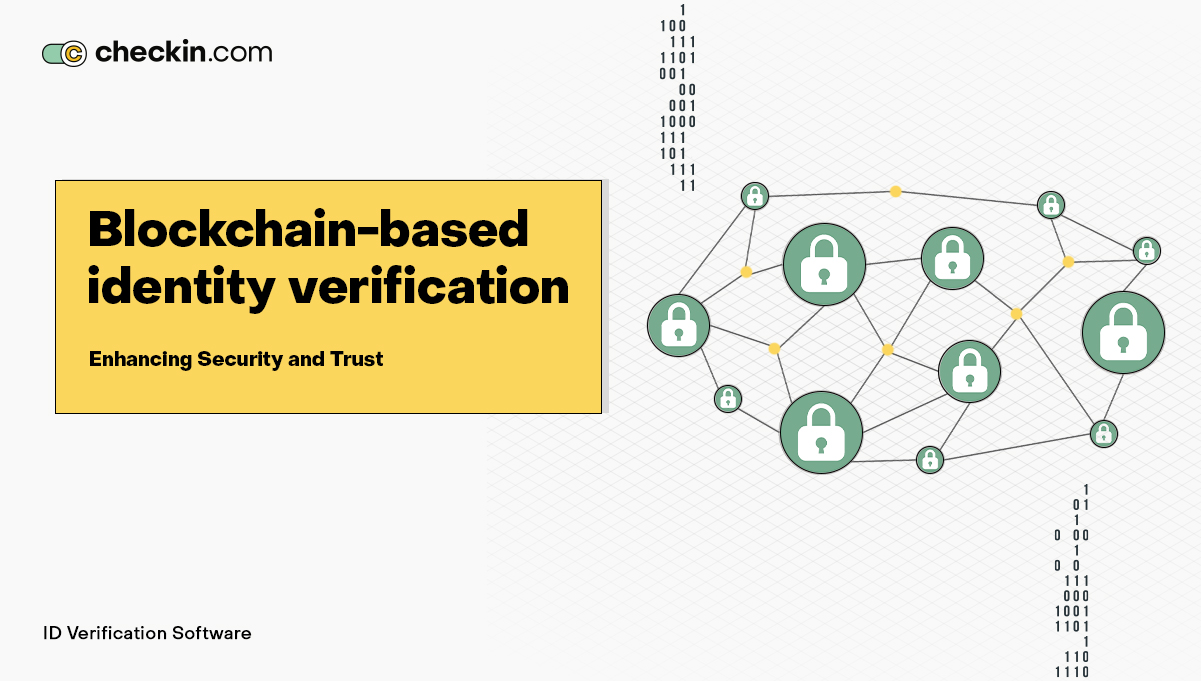
Identity Verification in Blockchain and Cryptocurrency
30 Mar 2023
This revolutionary technology offers a level of decentralization and privacy not seen before. But with these breakthroughs come fresh challenges – identity verification, for instance.
Why is this crucial? The anonymous nature of cryptocurrency transactions has, unfortunately, made them appealing for illicit activities. Consequently, to comply with regulatory norms and deter fraud, it’s vital to ensure the true identity of individuals engaging in these transactions.
The Advent of Solutions for Identity Verification
Recognising this need, innovative service providers have begun developing effective solutions for id verification service in the cryptocurrency and blockchain sphere.
Here’s how they’re making a difference:
- Decentralized Identity Solutions: These use the same principle as blockchain, ensuring data privacy and security while verifying user identities.
- Biometric Verification: This involves using unique physical characteristics of individuals like fingerprints or retina scans to confirm their identity.
- AI-Powered ID Verification: AI and Machine Learning algorithms can be used to authenticate documents and photos submitted by users, reducing the chances of fraud significantly.
Regulatory Compliance and Fraud Prevention
As regulatory scrutiny increases, their role becomes crucial in making blockchain and cryptocurrency transactions more transparent and secure.
The Future of Blockchain and Cryptocurrency
The future of identity verification in blockchain and cryptocurrency holds immense opportunities. As more individuals and businesses enter the digital currency world, the demand for robust, reliable identity verification solutions will only grow.
However, the road ahead isn’t devoid of challenges. Maintaining the essence of blockchain technology – decentralization and privacy – while ensuring adequate identity verification is a delicate task. It requires innovative thinking, advanced technology, and regulatory support.
Identity verification solutions must, therefore, be dynamic, continuously adapting to new threats and challenges.
A Deeper Dive Into Identity Verification
Despite the anonymity that’s fundamental to blockchain technology, the growing necessity to confirm the true identities of users has become apparent. By maintaining this crucial balance between privacy and transparency, we’re paving the way towards a safer, more reliable digital currency ecosystem.
Privacy Versus Transparency – Striking a Balance
Blockchain’s allure lies in its decentralization and anonymity, two aspects that have significantly fueled its growth. Individuals engaged in transactions are assured of their privacy, a crucial factor in an era where data privacy concerns are increasingly pressing. However, the anonymity has a dark side – it can be exploited for illegal activities, undermining the technology’s integrity and potential.
To strike a balance, identity verification can be integrated with blockchain and cryptocurrency transactions. While respecting the individual’s privacy, it ensures that these platforms aren’t misused. Service providers have been tactfully leveraging technologies like biometric verification, artificial intelligence, and decentralized identity solutions to achieve this delicate balance.
The Mechanisms of Identity Verification
Identity verification in the context of blockchain and cryptocurrency is not a one-size-fits-all process.
- Decentralized Identity Solutions work by assigning a digital identity to users. The users maintain control over their data, bolstering their privacy while providing a means for identity verification.
- Biometric Verification adds a layer of sophistication to the process. Unique physical attributes like fingerprint scans or facial recognition are hard to fake, making them reliable tools for authentication.
- AI-Powered ID Verification is revolutionising the game. With the ability to authenticate documents and images submitted by users, AI reduces the margin of error and bolsters security.
By leveraging these mechanisms, service providers are enabling a secure yet flexible environment for digital currency transactions.
Navigating the Regulatory Landscape
Navigating the regulatory landscape of blockchain and cryptocurrency isn’t a walk in the park.
These regulations demand that businesses conducting financial transactions must know the identities of their customers. As governments worldwide start acknowledging and regulating digital currencies, these rules are becoming applicable to cryptocurrency transactions as well.
In this evolving regulatory landscape, identity verification solutions act as a bridge, helping businesses comply with regulatory norms without disrupting their operations. By ensuring that customers are who they say they are, they’re fortifying the financial system against money laundering and other illicit activities.
Conclusion
In conclusion, as we further venture into the digital age, the need for robust identity verification mechanisms in blockchain and cryptocurrency transactions will continue to grow. The service providers stepping up to meet this demand are not only fostering safer digital environments but are also driving the future of this revolutionary technology.
The development and application of these solutions will undeniably play a pivotal role in the maturation and expansion of the blockchain and cryptocurrency space.
FAQ
What is identity verification in blockchain and cryptocurrency?
Identity verification is a process to verify the identity of individuals participating in cryptocurrency and blockchain-based transactions, primarily for regulatory compliance and fraud prevention.
Why is identity verification necessary for blockchain transactions?
Given the anonymous nature of blockchain and cryptocurrency transactions, identity verification is necessary to prevent misuse, comply with regulatory requirements, and maintain the integrity and security of these digital platforms.
How is identity verification conducted in the blockchain and cryptocurrency space?
Service providers utilise solutions such as decentralized identity solutions, biometric verification, and AI-powered ID verification to confirm the identity of users.